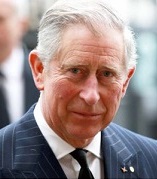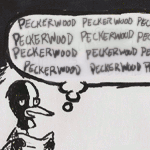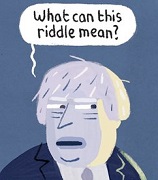|
Copout, I mean really nuclear war is a terrible loving idea for russia or the US at this point. It instantly turns part of the loving world into uninhabitable zones. Utilizing them after the fact is also a factor to look at, if they nuke us we will sure as gently caress nuke them nearly immediately or at least use High Emission Low yield tactical nukes against the launcher. Terrorist attacks are a bit difference, I don't think we would respond to a dirty bomb type situation if we were indeed hit by such a weapon. It would majorly up anti-terrorism domestically and abroad for us if such an event happened, but what about honest revenge nuking a country? If the IRA nuked the white house, would we nuke Belfast? So in what capacity would we or any country truly use nukes in any way shape or form?
|
|
|
|

|
| # ? May 5, 2024 14:10 |
|
LeoMarr posted:Copout, I mean really nuclear war is a terrible loving idea for russia or the US at this point. You say that like there was a point, or there will be, when it is not a terrible idea to destroy the earth with nuclear weapons.
|
|
|
|
We got through fifty years of cold war without anyone nuking anyone, so this side of the climatopocalypse I think we're gonna be okay. That said, if anyone nukes anyone, it'll be India/Pakistan. coffeetable fucked around with this message at 09:39 on Jul 14, 2015 |
|
|
|
we literally were in a cold war with loving stalin and everythign is fine in your gated community and elsewhere.
|
|
|
|
LeoMarr posted:? So in what capacity would we or any country truly use nukes in any way shape or form?   x2
|
|
|
|
gotta nuke somethin
|
|
|
|
we also nuked the gently caress out of some pacific islanders who are still kinda sore about it to this day at least japan and nevada deserved it
|
|
|
|
Stereotype posted:You say that like there was a point, or there will be, when it is not a terrible idea to destroy the earth with nuclear weapons.
|
|
|
|
Inferior Third Season posted:Um, what do you suggest as the last ditch murder-suicide method to use in our war against the sentient robots? Increasingly disturbing pornographic images. It's been working pretty well so far
|
|
|
|
QuarkJets posted:Increasingly disturbing pornographic images. It's been working pretty well so far what if they normalize those sex acts and it inspires them to do terrifying new acts of cyber war rape
|
|
|
|
coffeetable posted:We got through fifty years of cold war without anyone nuking anyone, so this side of the climatopocalypse I think we're gonna be okay. Only because we were insanely lucky. There where more than a couple of times where it almost happened.
|
|
|
|
Baloogan posted:we also nuked the gently caress out of some pacific islanders who are still kinda sore about it to this day Wait, I always assumed we nuked some uninhabited sandbars or something during our testing. Why the gently caress would we use inhabited islands?
|
|
|
|
MonsieurChoc posted:Only because we were insanely lucky. There where more than a couple of times where it almost happened. Yeah, after reading Command and Control I began to understand why so many people involved with nuclear weapons thought we'd avoided the apocalypse through Divine intervention, and I think I gave up reading it before I even got to the Cuban Missile Crisis. I have a sinking feeling that nuclear war is exactly the sort of disaster it's easy to underestimate the likelihood of, as it can come within a whisker of happening and the world will look just the same as if nothing had happened at all. e: The Vox World War III article will be posted in this thread at some point, so we might as well get it over with now.
|
|
|
|
Schizotek posted:Wait, I always assumed we nuked some uninhabited sandbars or something during our testing. Why the gently caress would we use inhabited islands? it was the 1950s man.
|
|
|
|
It almost happened multiple times during the cold war, but the vast majority of those times it would have been accidental, or through severe misinterpretation by one side at a time of tension (like the 1983 able archer crisis that the west didn't realise was a crisis until after the fact) rather than an intentional course by both sides. A conventional war between the NATO/Warsaw pact would have probably ended up nuclear quite quickly, but because of that it became less likely- especially as weapons technology progressed. If either side looked like winning, established doctrine for the other side was to start lobbing tactical/theatre level nukes. MAD works, it works really well until it doesn't work, and then it fucks everything spectacularly simply because of how it works- it works to ensure a nation can and will retaliate in full, and sets in place the infrastructure and contingencies to allow this to happen in the direst of circumstances. For example, one side launches a limited strike, but as the target nation won't know where or how bad they will be hit until after the fact, they launch everything they have in retaliation, because for all they know, in 10-15 minutes or less their missiles and/or government will be radioactive vapour one way or the other. The aggressor now is faced with the dilemma of use 'em or lose 'em for their remaining stocks, and they don't know if their opponent is holding back a second/third strike in reserve, so they go balls to the wall too. That this exists makes it less likely that anyone would intentionally start a nuclear war, but seen as we are now into cold war II the chances for accidents and misinterpretations is only going to grow again. In case of terrorist nuclear weapons, blame would be placed on a nation state quickly, and could well result in a nuclear strike. Something like that would dwarf the kind of political impact 9/11 had, and certainly retaliation would be popular among the population of the struck nation. In case of all out nuclear war, civilisation wouldn't probably make it, certainly not as we know it. Humans as a species would probably pull through after awhile though. DesperateDan fucked around with this message at 17:33 on Jul 14, 2015 |
|
|
|
Russia has this defence policy called de-escalation where they basically fire "some" tactical nukes at an enemy to make them back off. Presumably this would only be used against a threat or an enemy capable of doing unacceptable damage to Russia or its interests. I believe they also hold the right to do a pre-emptive strike in a similar situation and of course, what such a situation entails is up to their insane interpretations. Sounds good if not for the fact that the only enemies they'd ever consider resorting to this against would also have nukes and the shots of that enemy going "Welp let's just call it a day here and go home" is, I don't know, up in the air? Yeah, there's a chance it will happen. Civilization survived the Cold War without an accident through incredible luck.
|
|
|
|
Schizotek posted:Wait, I always assumed we nuked some uninhabited sandbars or something during our testing. Why the gently caress would we use inhabited islands? People live all over the pacific islands, and it's easier to set up a base on a place that can support human habitation. Besides they're foreign so who cares basically not even people frankly it's more unethical not to nuke them at this point.
|
|
|
|
OwlFancier posted:People live all over the pacific islands, and it's easier to set up a base on a place that can support human habitation. Frankly I'm just impressed at their ability to survive a nuclear explosion well enough to be mad at us for doing it.
|
|
|
|
Caros posted:Frankly I'm just impressed at their ability to survive a nuclear explosion well enough to be mad at us for doing it. Approximately 40 nuclear explosions, and apparently 6% of all total nuclear yield detonated across the planet.
|
|
|
|
I think global thermonuclear apocalypse leading to all of us breaking out our bondage gear and racing around in death cars is pretty darn unlikely. However, assuming we don't have a total techno-collapse, someone will eventually use some nukes on someone at some point. Frankly at the moment the most likely use case would be "nuclear bomb left for American invasion force to go partially around, before you set it off remotely".
|
|
|
|
|
Bikini Atoll's flag is specifically designed as a "gently caress you" to America for Castle Bravo: Wikipedia posted:The three black stars in the upper right represent the three islands that were disfigured in March 1954 during 15-megaton Bravo test by the United States. The two black stars in the lower right corner represent where the Bikinians live now, Kili Island, 425 miles to the south of Bikini Atoll, and Ejit Island of Majuro Atoll. These two stars are symbolically far away from Bikini's stars on the flag as the islands are in real life (both in distance and quality of life).
|
|
|
|
Schizotek posted:Wait, I always assumed we nuked some uninhabited sandbars or something during our testing. Why the gently caress would we use inhabited islands? I always kind of assumed that part of the objective of the tests was to measure the destructive capability of nuclear weapons on fertile landmasses and find out how long it would take before troops could re-occupy and encamp on the blast sites. So they'd kind of have to use inhabitable/inhabited (these two things usually being synonymous) islands instead of bare patches of sand. Edit: Nessus posted:I think global thermonuclear apocalypse leading to all of us breaking out our bondage gear and racing around in death cars is pretty darn unlikely. However, assuming we don't have a total techno-collapse, someone will eventually use some nukes on someone at some point. Frankly at the moment the most likely use case would be "nuclear bomb left for American invasion force to go partially around, before you set it off remotely". I think it's pretty much inevitable that very low-yield tactical nuclear weapons will eventually become a more-or-less standard armament. In an era where everything is electronic, it's too useful a weapon to ignore. Liberal_L33t fucked around with this message at 20:44 on Jul 14, 2015 |
|
|
|
DesperateDan posted:It almost happened multiple times during the cold war, but the vast majority of those times it would have been accidental, or through severe misinterpretation by one side at a time of tension (like the 1983 able archer crisis that the west didn't realise was a crisis until after the fact) rather than an intentional course by both sides. A conventional war between the NATO/Warsaw pact would have probably ended up nuclear quite quickly, but because of that it became less likely- especially as weapons technology progressed. If either side looked like winning, established doctrine for the other side was to start lobbing tactical/theatre level nukes. If MAD had actually been followed to its logical conclusion we'd all be dead now. The only reason we avoided nuclear war on a couple occasions is because an individual technician refused to believe an enemy nuclear strike was occuring and therefore did not deploy any kind of counter attack. If Stanislav Petrov had reported to his superiors that his instruments were detecting an American attack in 1983 there's a good chance most of the Global North would have become a sea of irradiated fire, and in fact Petrov's career suffered thanks to his decision not to report the erroneous attack. Had he operated as he was supposed to under the logic of MAD we'd all be dead. Human decency (and fear of death) actually kept us alive when MAD failed.
|
|
|
|
when it comes to 21st century thinking, the totality of a "nuclear holocaust" is actually the least of our worries. Once a conflict does inevitably flair up (like coffeetable mentioned, probably India/Pakistan), a limited nuclear exchange occurs, and everyone sees that the entire world doesn't go to poo poo, the idea of dropping one or two low grade nuclear weapons in conflicts is going to be a much more digestible idea. At this point, if we ever get to a nuclear holocaust scenario, it won't be because of a big single event, but a bunch of smaller events that culminate in a "oh wow we really hosed up the atmosphere and/or a bunch of habitable places." Also, it helps if you're not dropping the nukes on soldiers or people, but massive swarms of drones coming to mess with your poo poo. Canadian Surf Club fucked around with this message at 21:58 on Jul 14, 2015 |
|
|
|
Why do you think the rest of the world wouldn't give a poo poo about a nuclear war? I imagine the opposite would be closer to true.
|
|
|
|
Helsing posted:Why do you think the rest of the world wouldn't give a poo poo about a nuclear war? I imagine the opposite would be closer to true. what is a "nuclear war"? A war in which only nukes are used? Or one where at least one nuke is used? Where any kind of nuclear exchange occurs? Not saying that international countries wouldn't care. There'd be a lot of post-blast humanitarianism, a call to return to the negotiation table, etc. My point is that if a limited nuclear exchange occurred, something more likely in future smaller (not US vs Russia) conflicts, then the idea of a limited nuclear exchange within the confines of an already ongoing conflict would become more of a reality as all the "hype" around total nuclear destruction dies off.
|
|
|
|
I think any conflict that actually sees nuclear weapons being used in combat would be counted as a "nuclear war" at this point. I'm just skeptical about the idea that such an incident would encourage greater use of military weapons rather than prompting a much harsher crackdown on nuclear proliferation. Think about it. The citizens of most countries of the world would likely be horrified and demand a response. Perhaps on its own that wouldn't be enough, but this is the perfect example of a situation where the powerful countries of the world would have every incentive to use this opportunity as an excuse to limit membership in the nuclear club and to interfere in the behaviour of smaller states. Obviously it's hard to predict with any certainty what the global reaction to a limited nuclear war would be but I think it's at least as likely that such a conflict would be one of the few events that could genuinely create pressure for more international cooperation rather than making the usage of nuclear weapons more likely. After all, this is exactly what happened on the one occasion that nuclear weapons were used in a limited way during a war. Following the bombing of Hiroshima and Nagasaki the chances of further nuclear exchanges decreased because it was recognized that they represented an existential threat that over ruled any usefulness they might have.
|
|
|
|
Canadian Surf Club posted:what is a "nuclear war"? A war in which only nukes are used? Or one where at least one nuke is used? Where any kind of nuclear exchange occurs? I think the opposite is true as well. In the West we've sort of got a mindset that nuclear bombs are something from the past rather than an actual existential threat of today, and the detonation of a tactical nuclear bomb would shatter that in a pretty visceral way. Having said that, I can totally see Russia reacting in the way you describe, because their relation to nuclear weapons culturally and strategically would benefit from lowering the bar of acceptance around tactical nukes.
|
|
|
|
Helsing posted:If MAD had actually been followed to its logical conclusion we'd all be dead now. The only reason we avoided nuclear war on a couple occasions is because an individual technician refused to believe an enemy nuclear strike was occuring and therefore did not deploy any kind of counter attack. If Stanislav Petrov had reported to his superiors that his instruments were detecting an American attack in 1983 there's a good chance most of the Global North would have become a sea of irradiated fire, and in fact Petrov's career suffered thanks to his decision not to report the erroneous attack. Had he operated as he was supposed to under the logic of MAD we'd all be dead. The technician recognizing that MAD ensured a random small attack was unfeasible, and therefore the indication of such was much more likely a technical malfunction, is actually MAD working as intended. The idea was that both sides were deterred from attacking, and both knew that, and it worked perfectly in that instance. MAD policy kept the world safe for generations and continues to do so. The idea that all that theory and policy and huge amounts of money and effort were for nothing is politically appealing to some, but not factually accurate.
|
|
|
|
To be fair 1983 coming close to nuclear war was just as much Reagan's fault as it was accidental.
|
|
|
|
Kaal posted:The technician recognizing that MAD ensured a random small attack was unfeasible, and therefore the indication of such was much more likely a technical malfunction, is actually MAD working as intended. The idea was that both sides were deterred from attacking, and both knew that, and it worked perfectly in that instance. MAD policy kept the world safe for generations and continues to do so. The idea that all that theory and policy and huge amounts of money and effort were for nothing is politically appealing to some, but not factually accurate. Claiming that MAD did nothing would be too simplistic and comforting a message, but that doesn't change the fact that the entire premise of MAD was retaliating against a detected attack and, had that system actually operated as intended in this case, we all would have died. I'm not trying to pretend we can extract some cheesy message about how the human heart always conquers adversity. I'm just pointing out that a local commander deciding not to alert his superiors about an incoming attack is completely contrary to how the system was supposed to work. There might have been something the local technician didn't know or some kind of stealth missile hiding technology he was unaware of her perhaps the US was sending a few missiles that it was going to claim were fired by accident. He had no way of knowing but he ultimately trusted his gut rather than following through on his explicit orders. You can tell this because his superiors responded by transferring him to a less sensitive position and his career floundered afterwards. He was never given any formal recognition for quite possibly saving the world from a nuclear conflict. The Soviets immediately recognized that his independent behavior was contrary to the way MAD was meant to operate in those circumstances.
|
|
|
|
I think the idea of MAD is that it's such a terrifying and no-win prospect that it makes everyone think twice and thrice before launching missiles. You're not supposed to actually retaliate because it's a patently absurd idea, because you'll just kill everyone, but that you can retaliate is what makes it such a stupid idea to try. It serves to make nuclear weapon deployment utterly terrifying but at the same time, demands massive amounts of nuclear armament and redundant capability in order to keep that deterrent effect. The more mutually destructive one's nuclear capacity, the more impossible it becomes to actually use it, but of course, the more catastrophic it becomes if it is somehow used. OwlFancier fucked around with this message at 23:17 on Jul 14, 2015 |
|
|
|
If you look at the world stage right now one of the things that governments are trying to do is deescalate nuclear armament. Everybody knows what would happen if somebody pressed the big red button but at the same time if you have no nukes to retaliate with MAD doesn't work. There are enough nukes in existence to scour the Earth of civilization several times over but nobody uses them. This is also why WWIII hasn't happened. If you engage in a war it's because you think you have a possibility of winning. While conflicts have of course broken out the most powerful nations of the world have not been fighting each other directly for a while. Everybody is on edge because there are people that want wars but nobody wants to start big ones. The reason is because if you start a war you want to win. With the number of nuclear weapons around if WWIII starts everybody loses and that's guaranteed. Nobody is dumb enough to pull that trigger. Granted it's only a matter of time before a terrorist sets of a suitcase nuke but that in and of itself has its limits. Nuclear bombs are huge and it will be very obvious very quickly that it was a guerrilla tactic. I highly doubt any sane nation is going to escalate that. You don't push all the buttons just because one small nuke goes off.
|
|
|
|
Helsing posted:Claiming that MAD did nothing would be too simplistic and comforting a message, but that doesn't change the fact that the entire premise of MAD was retaliating against a detected attack and, had that system actually operated as intended in this case, we all would have died. I think that point is rather forced, since the system operated correctly in parsing that the attack was anomalous and extremely unlikely due to its characteristics, and therefore most likely a glitch (which it in fact was). The system operated as intended. Human decision-making was part of that system. quote:I'm not trying to pretend we can extract some cheesy message about how the human heart always conquers adversity. I'm just pointing out that a local commander deciding not to alert his superiors about an incoming attack is completely contrary to how the system was supposed to work. There might have been something the local technician didn't know or some kind of stealth missile hiding technology he was unaware of her perhaps the US was sending a few missiles that it was going to claim were fired by accident. He had no way of knowing but he ultimately trusted his gut rather than following through on his explicit orders. You can tell this because his superiors responded by transferring him to a less sensitive position and his career floundered afterwards. He was never given any formal recognition for quite possibly saving the world from a nuclear conflict. The Soviets immediately recognized that his independent behavior was contrary to the way MAD was meant to operate in those circumstances. I think that you are conflating Soviet political maneuvers - in particular an unwillingness to publicly recognize that their missile detection hardware had serious problems - with the concept and policy of MAD itself (which worked perfectly and prevented a nuclear exchange). MAD isn't a suicide pact, it's a reminder to not do stupid poo poo.
|
|
|
|
Kaal posted:I think that point is rather forced, since the system operated correctly in parsing that the attack was anomalous and extremely unlikely due to its characteristics, and therefore most likely a glitch (which it in fact was). The system operated as intended. Human decision-making was part of that system. The human decision-making was supposed to be conducted by higher up Soviet officials, not the button pusher who happened to be on duty when an attack was detected. I mean, you're obviously correct in a trivial way that fear of nuclear war prevented this guy from notifying his higher ups, but the idea behind MAD was that the absolute certainty of a counter attack would discourage an attack from happening, and that is not what happened in this case. I don't think either side predicated their strategy on the belief that a low level official would simply not report what his sensors were telling him was happening on the hope that those sensors were wrong. If the Soviet system had worked exactly as it was set up there likely would have been a nuclear exchange. quote:I think that you are conflating Soviet political maneuvers - in particular an unwillingness to publicly recognize that their missile detection hardware had serious problems - with the concept and policy of MAD itself (which worked perfectly and prevented a nuclear exchange). MAD isn't a suicide pact, it's a reminder to not do stupid poo poo. So far as I know the incident wasn't made public until after the USSR collapsed so this explanation doesn't make sense - also I'm not sure why scuttling someone's career would be the ideal way for the Soviets to keep someone quiet, if that's what they were really worried about. The more logical explanation, to me at least, is that they put him in a less sensitive post because they didn't approve of his behavior.
|
|
|
|
Helsing posted:The human decision-making was supposed to be conducted by higher up Soviet officials, not the button pusher who happened to be on duty when an attack was detected. The human decision-making was made by the duty officer, a lieutenant colonel, as it was intended. He recognized that it was a false alarm, with the knowledge that the satellite in question had been responding erratically, and acted accordingly. quote:There are questions about the part Petrov's decision played in preventing nuclear war, because, according to the Permanent Mission of the Russian Federation, nuclear retaliation requires that multiple sources confirm an attack.[3] In any case, the incident exposed a serious flaw in the Soviet early warning system. Petrov asserts that he was neither rewarded nor punished for his actions.[4] https://en.wikipedia.org/wiki/Stanislav_Petrov https://en.wikipedia.org/wiki/1983_Soviet_nuclear_false_alarm_incident Basically I think that you're interjecting an entire narrative of "a decent man saved the world by telling the officers to go to hell" where it does not exist. He followed his orders and his training, as part of the overarching MAD policy. The farthest I can really go in that direction would be acknowledging that perhaps someone else might have made a different call, which might have continued up the bureaucracy and have led to G.S. Yuri Andropov having to consider whether the threat was real. But at that point it isn't really "following MAD should have led to our doom" so much as "ignoring MAD and launching missiles willy-nilly would have led to our doom". Kaal fucked around with this message at 00:16 on Jul 15, 2015 |
|
|
|
Kaal posted:The human decision-making was made by the duty officer, a lieutenant colonel, as it was intended. He recognized that it was a false alarm, with the knowledge that the satellite in question had been responding erratically, and acted accordingly. Wikipedia posted:On 26 September 1983, Stanislav Petrov, a lieutenant colonel in the Soviet Air Defense Forces, was the officer on duty at the Serpukhov-15 bunker near Moscow which housed the command center of the Soviet early warning satellites, code-named Oko.[5] Petrov's responsibilities included observing the satellite early warning network and notifying his superiors of any impending nuclear missile attack against the Soviet Union. If notification was received from the early warning systems that inbound missiles had been detected, the Soviet Union's strategy was an immediate nuclear counter-attack against the United States (launch on warning), specified in the doctrine of mutual assured destruction.[6] Note that this happened within about a months time of the Able Archer exercise which many Soviet officials suspected might be the cover for an actual nuclear assault. If Petrov's hunch had been wrong then Moscow would only have had minutes to react to a nuclear strike. Ultimately this debate really hinges on exactly what Petrov's training instructed him to do in the event that the computer told him there was an attack. You seem to be assuming that Petrov's training gave him a lot of leeway to over rule the computer whereas I'm assuming that he was supposed to immediately tell his superiors and allow them to analyze the data. Unless you have access to Soviet training material it's going to be hard to determine exactly how much he followed or deviated from his orders but, as I said above, my own assumption here is that standard procedure would be to notify your superior about any and all detected attacks. quote:Basically I think that you're interjecting an entire narrative of "a decent man saved the world by telling the officers to go to hell" where it does not exist. He followed his orders and his training, as part of the overarching MAD policy. According to Wikipedia his orders were to notify his superiors in the event of an attack. It's very unclear how much leeway he was given to interpret ambiguous data but generally speaking the USSR liked to centralize decision making in these situations which is why I'm skeptical about your argument.
|
|
|
|
Helsing posted:Note that this happened within about a months time of the Able Archer exercise which many Soviet officials suspected might be the cover for an actual nuclear assault. If Petrov's hunch had been wrong then Moscow would only have had minutes to react to a nuclear strike. Again, based on his training and what the satellite information was telling him, he did not see an attack. He saw a false alarm. Why did he see this? Because MAD told him that an attack by five missiles was insane and extremely unlikely. His orders were to report attacks, and he did so. There were zero attacks that day, or any other day.
|
|
|
|
You write that as though you know what the specific training doctrines of the Soviet Air Defense Force were when, as I already pointed out, both of us are simply speculating on what we think his precise orders would have been. Like I said, I highly doubt the Soviet leadership would have been comfortable with him interpreting the data so heavily rather than simply reporting on what his equipment told him was happening (especially in the context of what was going on internationally during the fall of 198). I think the fact he was subsequently punished by his superiors gives credence to that argument.
|
|
|
|

|
| # ? May 5, 2024 14:10 |
|
Helsing posted:You write that as though you know what the specific training doctrines of the Soviet Air Defense Force were when, as I already pointed out, both of us are simply speculating on what we think his precise orders would have been. Like I said, I highly doubt the Soviet leadership would have been comfortable with him interpreting the data so heavily rather than simply reporting on what his equipment told him was happening (especially in the context of what was going on internationally during the fall of 198). I think the fact he was subsequently punished by his superiors gives credence to that argument. Again, Petrov and the Soviet officers who were involved: quote:There are questions about the part Petrov's decision played in preventing nuclear war, because, according to the Permanent Mission of the Russian Federation, nuclear retaliation requires that multiple sources confirm an attack.[3] In any case, the incident exposed a serious flaw in the Soviet early warning system. Petrov asserts that he was neither rewarded nor punished for his actions.[4]
|
|
|


































